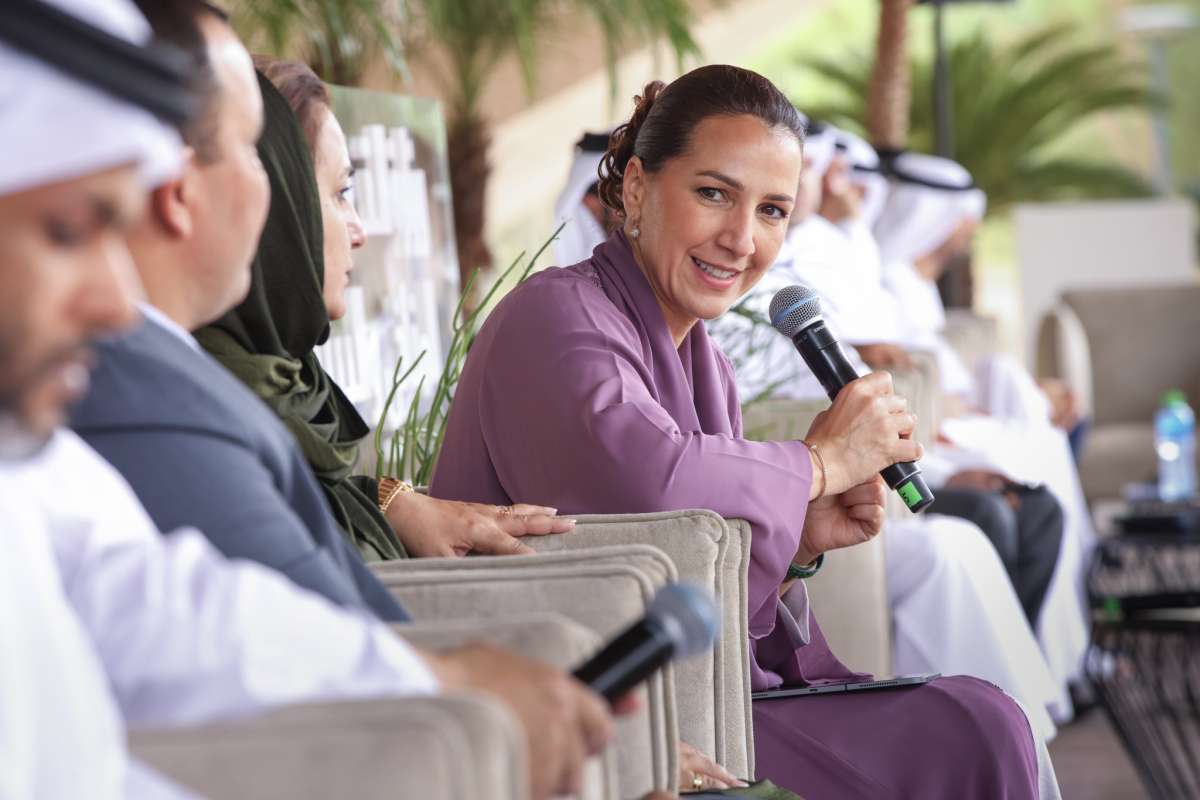The participants discussed the importance of transforming food systems and agriculture in the UAE, highlighting existing solutions, and identifying challenges and new pathways for collaboration….reports Asian Lite News
The latest high-level national Majlis session being held in the lead up to COP28 took place yesterday in Fujairah, organised by the UAE Ministry of Climate Change and Environment (MoCCAE).
The participants discussed the importance of transforming food systems and agriculture in the UAE, highlighting existing solutions, and identifying challenges and new pathways for collaboration.
Mariam bint Mohammed Almheiri, UAE Minister of Climate Change and Environment, chaired the Majlis, and the session was moderated by Fatma Almulla, Director of the Partnerships and Special Projects Department at MOCCAE.
The Majlis was attended by Eng. Mohamed Saif Al Afkham, Director General of Fujairah Municipality, Aseilah Abdulla Ali Moalla Al Hashmi, Director of Fujairah Environment Authority, and Sultan Jemei Al-Hindassi, Director General of Fujairah Chamber of Commerce and Industry.
The Majlis was also attended by climate leaders from MOCCAE including, Mohammed Saeed Al Nuaimi, Acting Undersecretary of the Ministry, Eng. Mohammed Mousa Alameeri. Assistant Undersecretary for the Food Diversity Sector, Eng. Othaibah Al Qaydi, Acting Assistant Undersecretary for the Sustainable Communities Sector, and Shaikha Ahmed Al Ali, Acting Assistant Undersecretary for the Regions Sector.
Mariam Almheiri, who is also COP28 Food Systems Lead, said: “We are here today, a week away from COP28, to discuss how we can make our food systems more sustainable. In the lead up to COP28, we are hosting these Majlis events across the UAE, fulfilling the need for greater inclusivity in climate talks.”
She said that COP28 is a platform for tangible, inclusive action – covering every sector. “And for the first time at any COP, we are placing food systems at the heart of the discussions. Our COP28 Food Systems and Agricultural Agenda is an ambitious plan to transform global food systems and ensure their long-term sustainability.
“We are extending a global call to action, inviting all nations to sign the Emirates Declaration on Resilient Food Systems, Sustainable Agriculture, and Climate Action, and commit to aligning their national food systems and agricultural strategies with their climate change plans.”
Almheiri added that at COP28, for the first time in COP history, all meals that will be sourced, produced, and disposed of sustainably. “We anticipate serving some 250,000 carbon-neutral meals to over 60,000 visitors.”
Underlining the need for food system transformation, Almheiri said: “Food systems and agriculture are critical components of the global economy and society, impacting everything from food security, population stability, and public health to environmental sustainability and economic development.
“Government, the private sector, and each one of us must play our parts in transforming our food systems. To do so, we must understand the connections between the private and government sectors to allow for more effective climate action in terms of changing the way we produce, source, consume and dispose of our food,” she explained.
The Minister called on attendees to address the task of aligning innovation, technology and new ideas that break down the barriers to widespread adoption of sustainable food systems.
Eng. Mohamed Saif Al Afkham thanked the Ministry of Climate Change and Environment for organising this Changemakers Majlis. He said that food security is at the heart of the UAE’s national goals and requires a change in the concepts and culture of the private sector and community in dealing with food, starting from its production, and ending with its consumption, as well as reducing food waste. He stressed that Fujairah has many companies operating in the food sector, and their cooperation will help the Emirate to be a key player in this sector at a national level.
Aseilah Abdulla Ali Moalla Al Hashmi said private sector companies work closely with the relevant federal authorities in the UAE. She added that Fujairah is establishing more policies and laws that facilitate the work of these companies and contribute to increasing local food production in addition to strengthening the entire food value chain.
During the Majlis, the attendees stressed the need for the private sector to amend its goals, strategies, and investments to achieve a transformation in their food production systems and supply chains. The participants discussed the need to facilitate access to modern technology for farm development. They stressed the need to enhance the productivity of small farmers through advanced techniques and by training the farmers on how to use them.
The Majlis highlighted the need to find solutions to the challenges of obtaining the necessary resources for farms and food production facilities, such as seeds and equipment.
The Majlis underlined the importance of expanding cooperation between the private sector and national farms to encourage them to increase local production and the supply of local products in the market. The discussions highlighted the need to raise community awareness about the importance of local products and healthy food, which underscores the importance of cooperation with the retail sector across the UAE.
During the Majlis, the attendees reviewed ways to increase financing by building confidence between investors and producers in the UAE and developing new financing systems to encourage small farmers and producers.
In addition to modern technology, the attendees added that nature-based solutions play a key role in facing the challenges of food and agricultural production, and that they must be developed.

Leave a Reply